Library Night at the USB in Cologne
The event started at 5.30 pm when about 30 people from different disciplines had gathered in a room on the ground floor of the University and City Library (USB) of Cologne. Dr. Dennis Arnold, Dr. Elen Le Foll and Dr. Gabriele Schwiertz are the usual organizing committee of the series ReproducilibiTea in the HumaniTeas, which is centered around learning all about reproducibility, responsibility, and integrity in humanities research.
On Friday evening, they were joined by the chair of the Ethics Commission of the Faculty of Arts and Humanities - Prof. Dr. Sebastian Barsch, professor for history with a focus on didactics. The three of them sat on a bright red sofa in front of about 20 chairs and additional matching red seating cubes. A big screen was installed, displaying the staring screen of the Dilemma Game (Rotterdam 2020) and indicating a code for participants to join the game via the game’s app. Elen took over the role of the game moderator asking Dr. Arnold, who has acted as ombudsperson at the Leibniz Institut für Deutsche Sprache, and Prof. Barsch their expert opinions on the ethical research dilemmas tackled in the game.
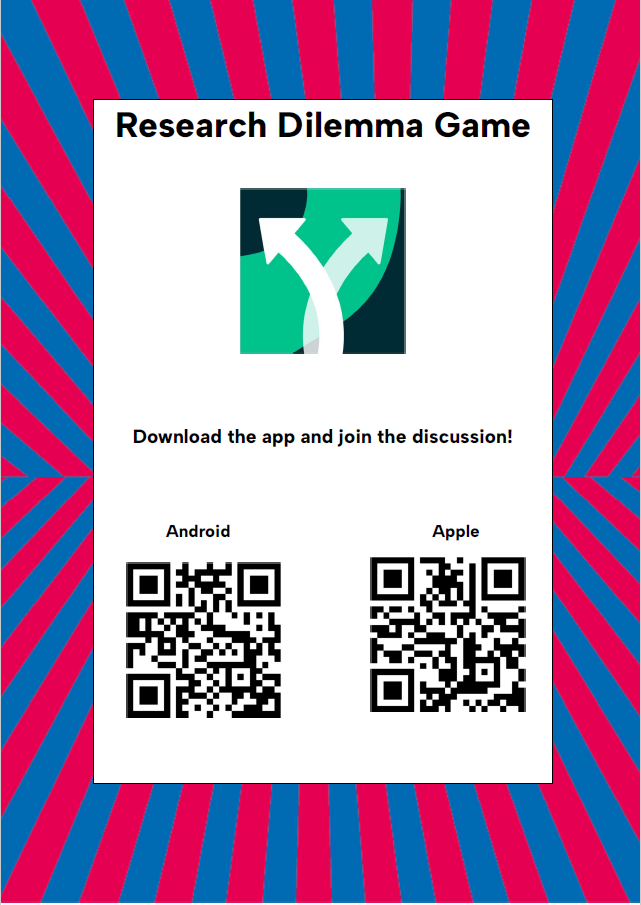
The Dilemma Game
The game worked as followed: Questions appeared on the big screen and on the participants’ smartphones indicating a ethical dilemma tied to topics such as informed consent, sharing data, and authorship in academic publications. The dilemma was read out loud by Elen and the players were given a few minutes to discuss with their seat neighbors which of the four given options seemed most appropriate to them. After a few minutes, the chosen answers could be seen as percentage on the screen and on the participants’ smartphones. After a few moments analyzing the results, Elen tied Prof. Barsch and Dr. Arnold into the discussion asking them about their opinions, whether they agreed with the group’s majority vote or not, what implications such dilemmas could have, and what experiences they had had in similar contexts. The discussion was also opened up to all participants, which provoked some interesting inter-disciplinary discussions.
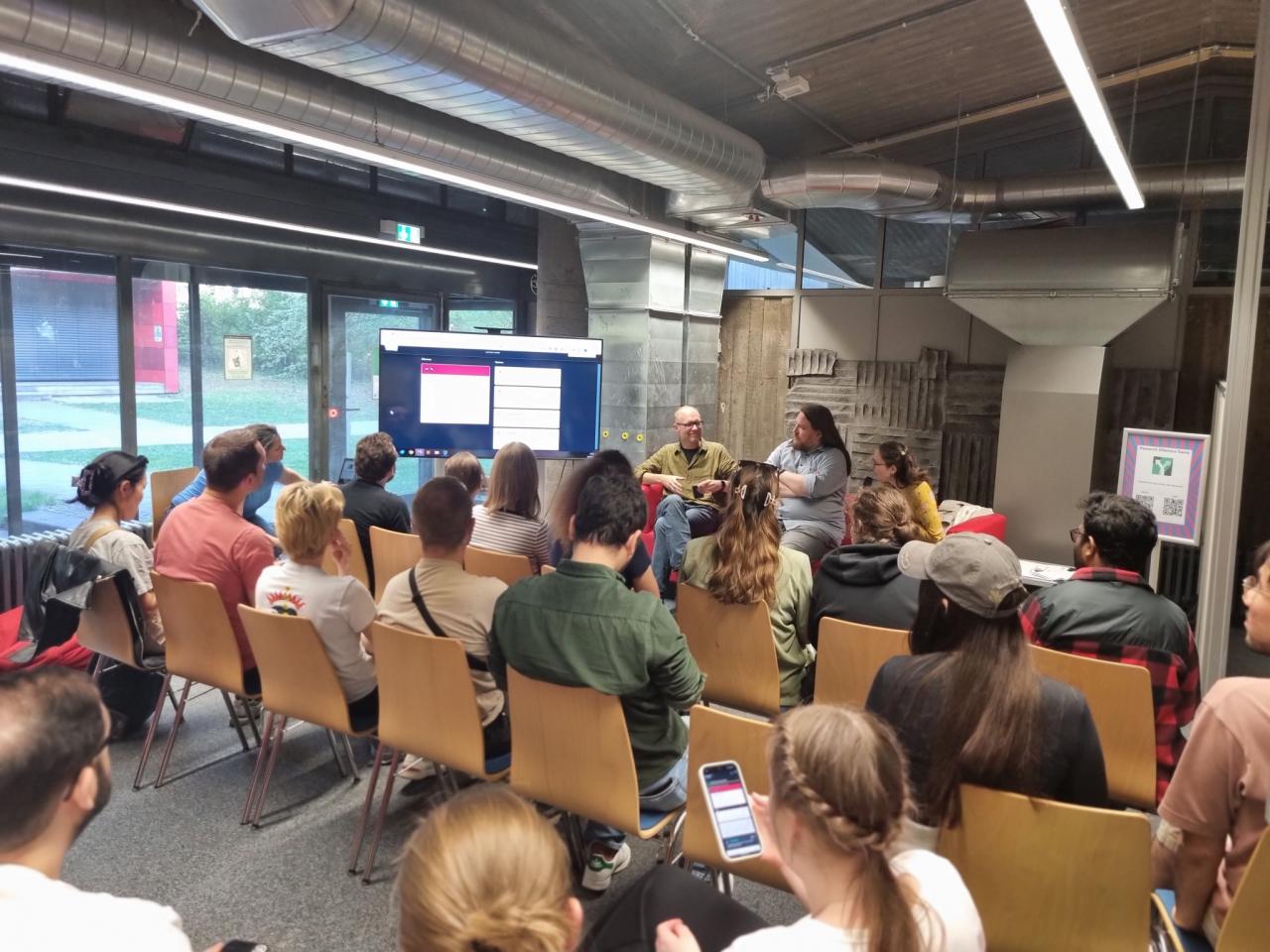
Some example dilemmas
The following screenshots are meant to give a bit of insight into the kinds of dilemmas presented that night. They all had in common that they described dilemmas occurring in academic contexts, especially in data-based disciplines of research, such as linguistics, biology, psychology, or physics. The dilemmas/questions were very varied ranging. Here some examples of two dilemmas with the situations and corresponding answer-possibilities:
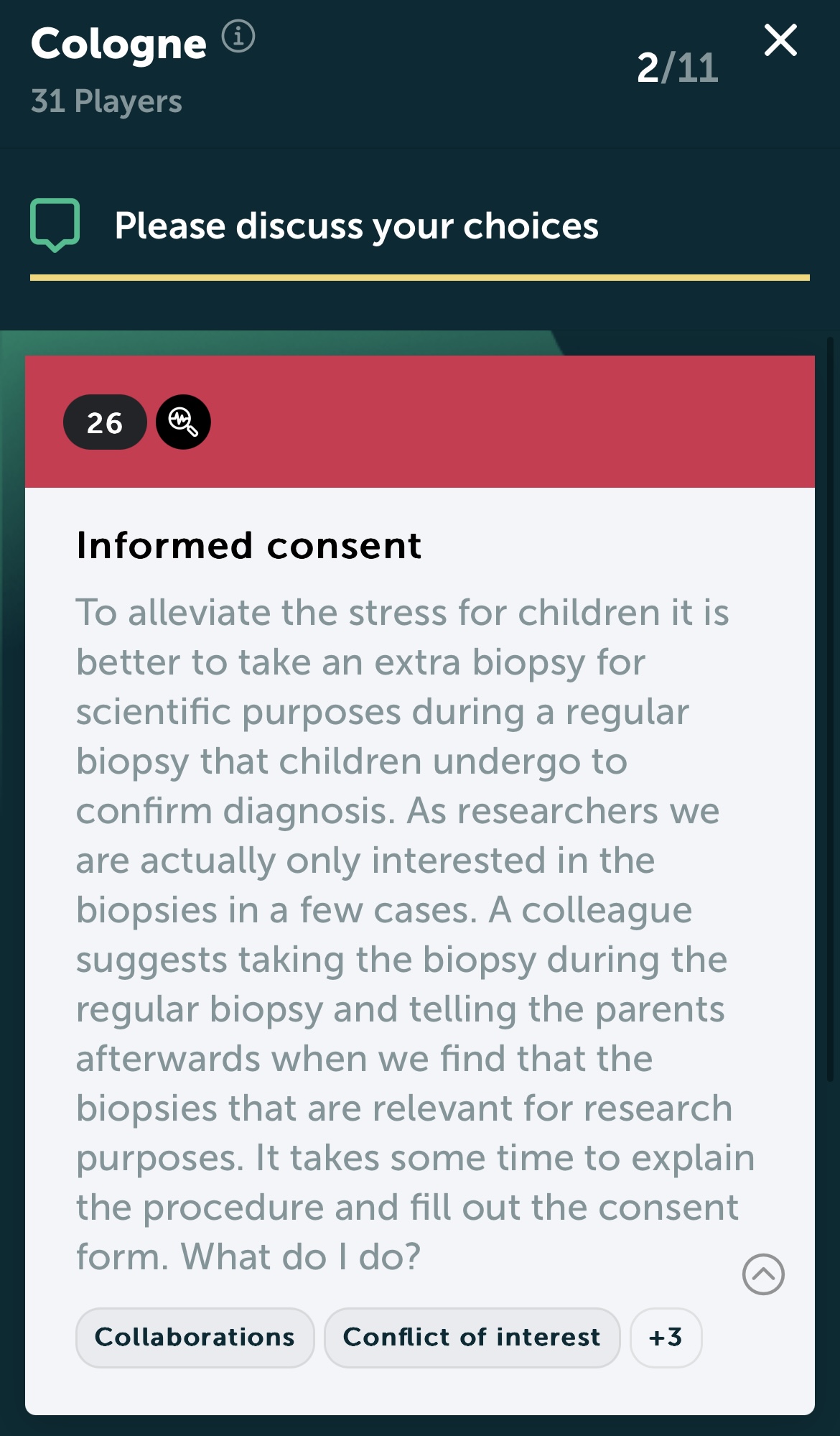
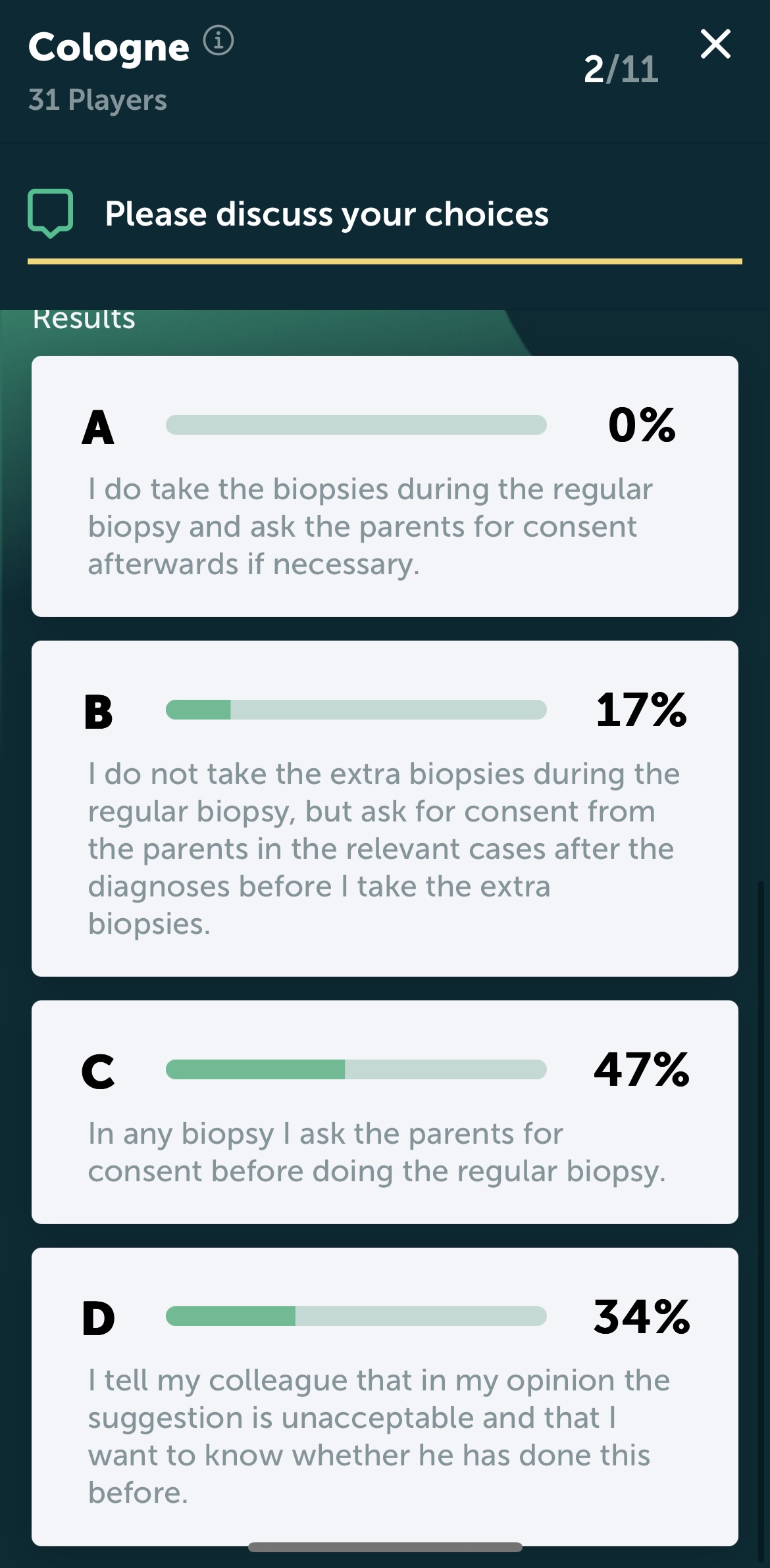
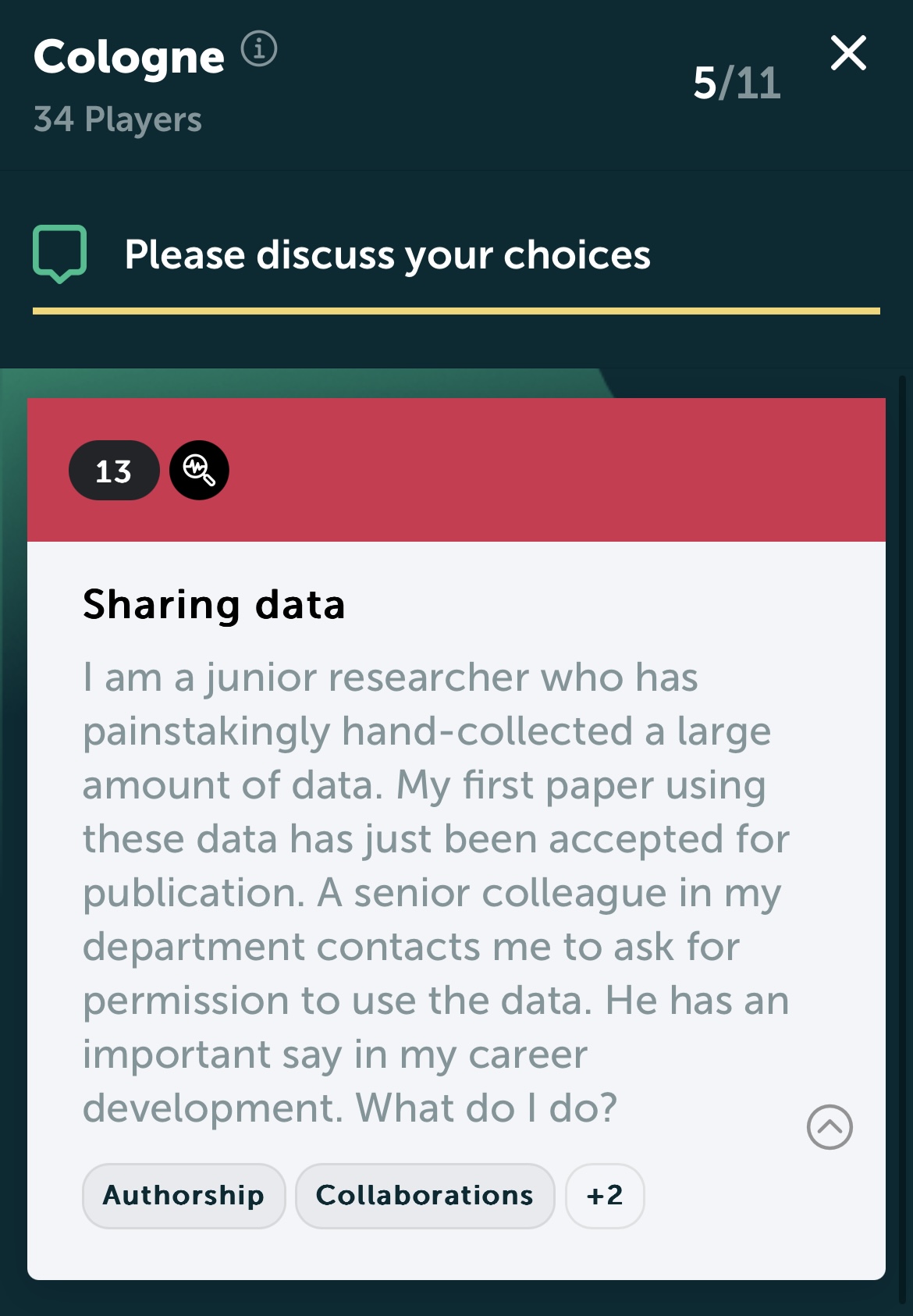
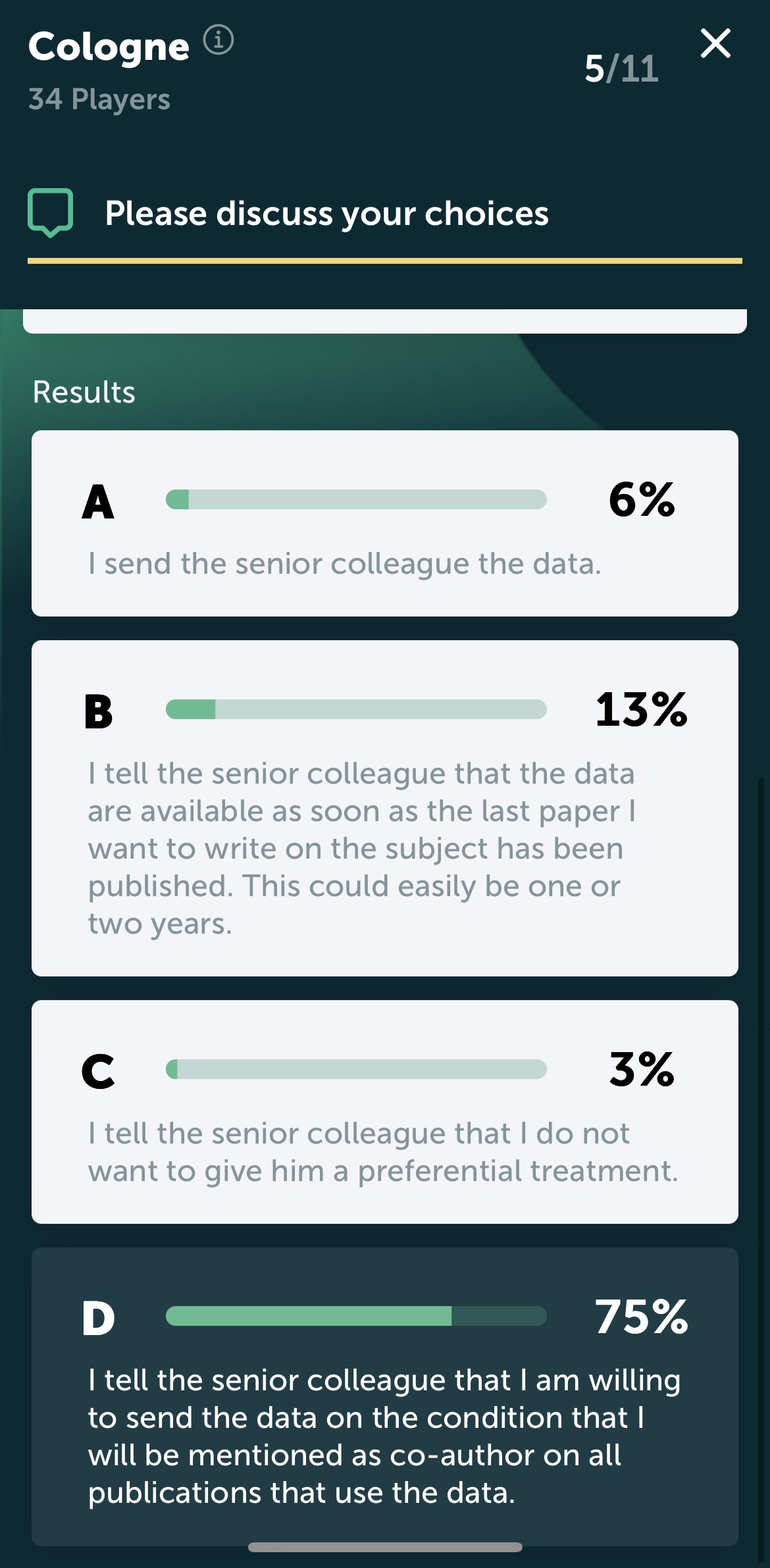
Conclusion and rest of the Open Science Games Night
I personally found the dilemma game to have been very varied, in the described situations as also in the participants who gave very interesting opinions and spoke about personal experiences or the limitations of the dilemmas’ options. I also thought the incorporation of Prof. Barsch into the discussion and placement of the dilemmas was vital and gave the audience even more sides to look at the problem from.
After 90 minutes of figuring out what the best solutions in such dilemmas could be, the hosts announced that there were free drinks and pizza and that the Library Game Night would continue at the tables around the room, which were already filling up with people engaging in a variety of board and card games. The ReproducilibiTea in the HumaniTeas team put together a range of Open Science-related games including Research Data Black Stories, a new board game on Open Access publishing, and customized versions of popular party games (Poesie für Neandertaler, Dobble, and Tic-Tac-Bum) on topics related to Open Science, data visualisation, and research data management (RDM).
All in all, it was a very fun evening with a lot of learning-potential for newcomers to academia and maybe also a moment for more experienced scholars to re-think past data-handling situations and other research-related ethical decisions.